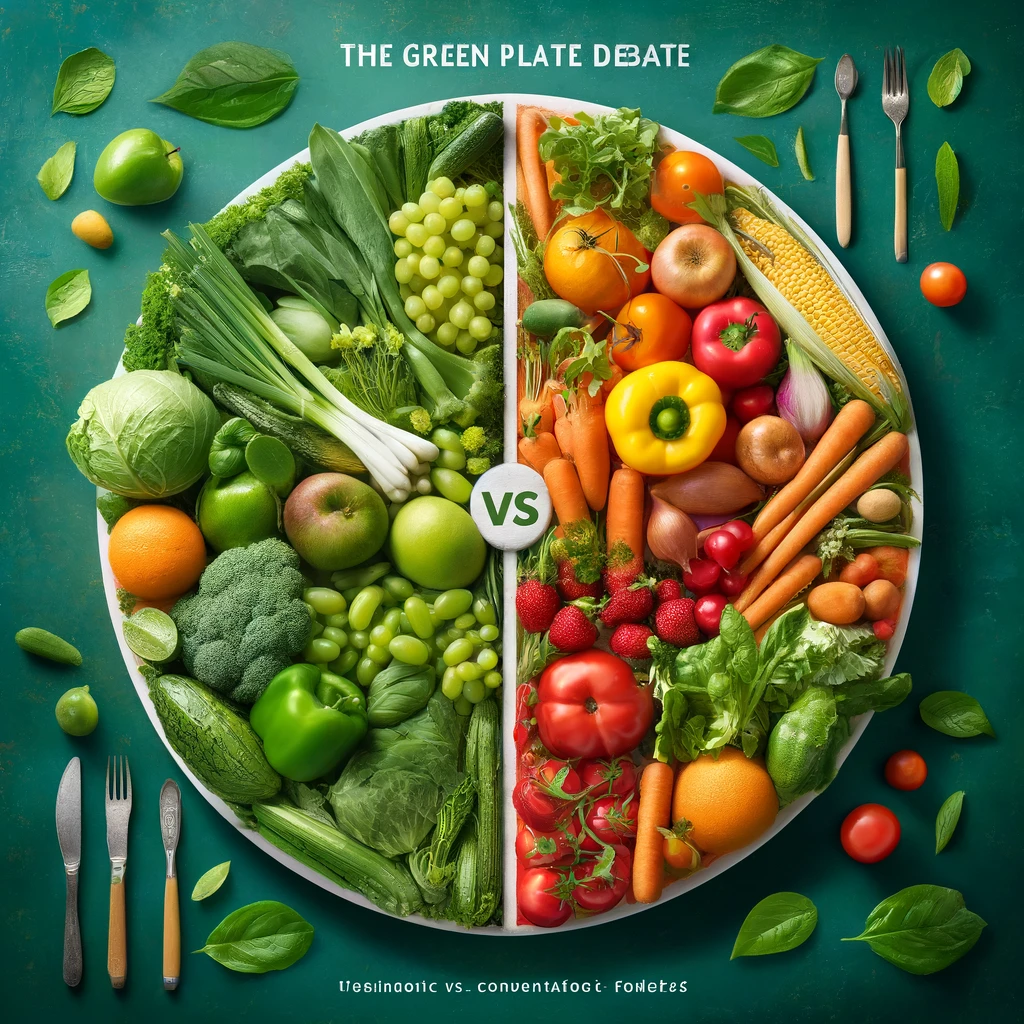In an era where health and sustainability are at the forefront of consumers’ minds, the debate between organic vs conventional foods has never been more relevant. This article delves into the core of this debate. It offers insights into how each choice affects our health, the planet, and our future.
1. Nutritional Content: Is There a Difference?
Studies show that organic foods often have higher antioxidant levels and less pesticide residue than conventional counterparts. However, the nutritional difference is not always stark. Both food types provide essential nutrients. The choice between organic and conventional might depend on individual health goals and concerns about chemical exposure. This makes organic foods a preferable option for those looking to minimize their intake of pesticides and chemicals.

2. Environmental Impact: Beyond the Plate
Organic farming emphasizes sustainable practices that benefit the environment. It reduces pollution, conserves water, reduces soil erosion, and increases soil fertility. In contrast, conventional farming often uses more synthetic pesticides and fertilizers. This contributes to water pollution and soil degradation. Choosing organic supports practices that keep our planet healthy. Thus, the preference for organic foods can significantly reduce one’s ecological footprint.
3. Cost and Accessibility: The Practical Considerations
Organic foods are generally more expensive as they require more labor-intensive farming practices and certification procedures. This price difference can make organic options less accessible to some consumers. However, with the growing popularity of organic farming and consumer demand, the price gap is beginning to close, making organic options more widely available and slightly more affordable. Ultimately, the decision to balance the cost of organic foods with their benefits is a personal decision.

4. Pesticide Residue: A Health Concern
Organic food has a major advantage over conventional food – it contains lower levels of pesticide residue. Although conventional food products typically contain permissible levels of pesticides, some consumers prefer to be extra cautious. For people who have health vulnerabilities or are particularly concerned about chemical exposure, choosing organic food offers peace of mind. This is especially crucial for pregnant women and children who need to reduce their exposure to harmful pesticides.
5. Taste and Quality: Perceived Differences
Many consumers report a preference for the taste of organic foods, attributing this to better soil health and the absence of chemicals. While taste is subjective, the belief that organic foods are fresher or of higher quality can enhance the eating experience. This perception plays a significant role in driving the demand for organic produce.

6. Supporting Local Economies: A Ripple Effect
Choosing organic often means supporting small to mid-size local farms. These farms contribute to their communities by providing jobs and supporting local economies. In contrast, conventional foods are frequently produced by larger agribusinesses. By buying organic, consumers can have a direct impact on their local economy and food system.
7. Health Implications: The Long-Term Benefits
Consuming organic foods may contribute to better long-term health outcomes due to lower exposure to pesticides and potentially higher nutrient levels. Studies suggest that organic diets may be linked to reduced risks of certain diseases, including heart disease and certain cancers. Consumers often choose organic to avoid the unknown effects of the cumulative buildup of pesticides. Organic foods are regulated to be free of artificial preservatives, colors, and flavors, aligning with a more natural diet. This precautionary approach can be particularly beneficial for children, whose developing bodies are more susceptible to chemical exposures.

8. Animal Welfare and Ethical Considerations
Organic farming standards generally require more humane conditions for livestock, including access to the outdoors, organic feed, and restrictions on the use of antibiotics and hormones. This not only impacts the quality of the meat and dairy products but aligns with higher animal welfare standards. Consumers increasingly consider the ethical implications of their food choices, which drives interest in organic products. Ethical considerations are becoming a significant factor in consumer decisions, with many opting for organic to ensure they are supporting humane and sustainable farming practices.
Take a Step Towards a Greener Plate
The decision between organic and conventional foods extends beyond personal health; it touches upon environmental sustainability, economic justice, and societal health. By making informed choices, consumers have the power to influence the food industry towards more sustainable practices.
Read More
15 Unusual Grocery Items That Became Unexpectedly Popular
Shop Smart: 5 grocery store hacks to get you through till payday







